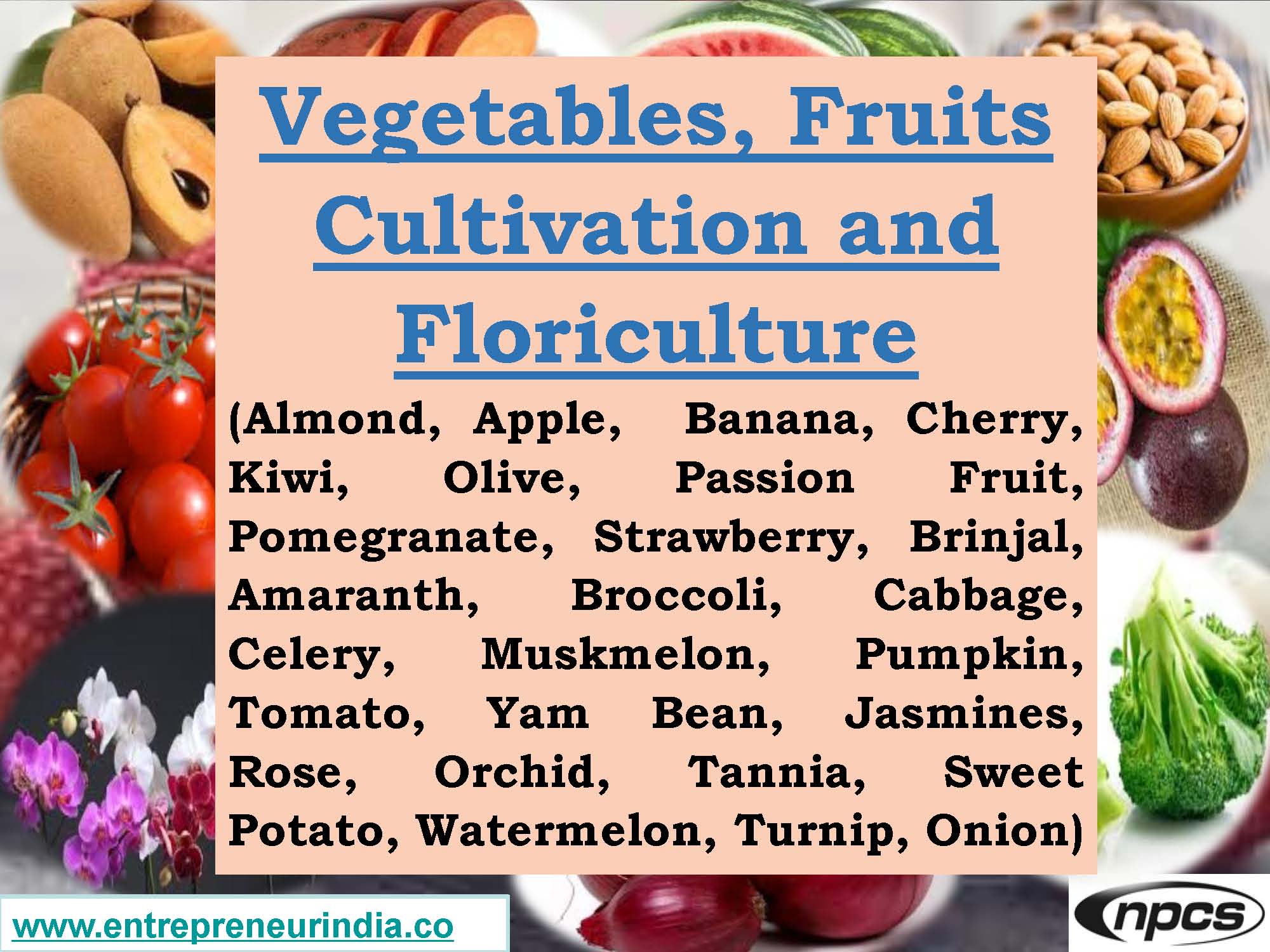
From home gardens to commercial farms, the cultivation of edible plants and flowers plays a significant role in modern agriculture and sustainability. With rising global demand for fresh produce and ornamental plants, farmers and horticulturists are now focusing on diverse crops like almond, kiwi, celery, and pomegranate. The keyword vegetables-fruits-cultivation-and-floriculture-almond-apple-banana-cherry-kiwi-olive-passion-fruit-pomegranate-strawberry-brinjal-amaranth-broccoli-cabbage-celery-muskmelon-pumpkin represents a broad spectrum of high-value fruits, vegetables, and flowering plants, each requiring unique growing conditions and techniques. Moreover, advancements in climate-resilient farming, organic cultivation, and high-density planting have made it possible to achieve both yield and quality. Let’s explore how these crops are cultivated and their relevance in today’s floriculture and food systems.
Understanding Cultivation Techniques and Floriculture in Horticulture
Cultivating fruits, vegetables, and flowers involves soil preparation, climate selection, irrigation management, pest control, and post-harvest handling. This blend of science and art shapes the success of various crops across regions. In this section, we break down the cultivation aspects of crops included in vegetables-fruits-cultivation-and-floriculture-almond-apple-banana-cherry-kiwi-olive-passion-fruit-pomegranate-strawberry-brinjal-amaranth-broccoli-cabbage-celery-muskmelon-pumpkin and how floriculture complements them in aesthetic and economic value.
Read More :Business to Start in Chhattisgarh
Temperate Fruits: Almond, Apple, Cherry, and Kiwi
Temperate fruits such as almond, apple, cherry, and kiwi require cold winters and specific chilling hours to bear fruit. Apples thrive in loamy, well-drained soils and benefit from regular pruning and thinning. Almonds prefer Mediterranean climates with dry summers and mild winters. Cherry trees are highly sensitive to temperature fluctuations but offer lucrative returns with proper frost protection. Kiwi, a vine plant, needs trellising, high humidity, and cross-pollination for fruit set. These fruits are often cultivated in hilly or sub-hilly zones and contribute significantly to orchard-based horticulture.
Tropical and Subtropical Fruits: Banana, Passion Fruit, Olive, and Pomegranate
Banana cultivation demands warm temperatures, high humidity, and rich organic soil. Farmers use tissue culture and drip irrigation to boost productivity. Passion fruit, a climbing vine, requires well-drained loamy soil and support structures. It produces high returns within a year. Olive trees, best suited for arid climates, are gaining ground in Indian states like Rajasthan and Himachal Pradesh for oil production. Pomegranates, known for drought tolerance, are ideal for semi-arid regions and thrive with minimal care. As a result, these crops offer flexibility and profitability in diverse agro-climatic zones.
Berries and Specialty Fruits: Strawberry and Muskmelon
Strawberry cultivation needs cool climates, raised beds, and plastic mulching for weed control and moisture retention. It is a short-duration, high-value crop that performs best in well-aerated, sandy loam soils. In contrast, muskmelon grows during warmer seasons and requires ample sunlight, sandy soils, and regular irrigation. These crops are popular among small-scale farmers and agri-entrepreneurs due to their shorter harvesting cycles and good market demand. Moreover, innovations in vertical farming and hydroponics have expanded berry and melon cultivation even in urban areas.
Vegetable Cultivation: Brinjal, Amaranth, Broccoli, Cabbage, Celery, and Pumpkin
Brinjal (eggplant) is a hardy crop grown year-round in tropical regions. It responds well to organic manures and integrated pest management. Amaranth, a leafy green, matures quickly and thrives in warm, humid conditions with minimal input. Broccoli and cabbage, both cole crops, are rich in nutrients and grow best in cooler climates with frequent irrigation and pest control. Celery, a medicinal vegetable, prefers moist soils and cool weather and is grown primarily for its stalks and seeds. Meanwhile, pumpkin needs warm temperatures, open fields, and sandy loam soils for best yield. Together, these vegetables form the backbone of kitchen gardening and commercial vegetable production.
Floriculture: Enhancing Aesthetic and Economic Value
Floriculture focuses on the cultivation of ornamental flowers for decorative, religious, and commercial uses. It includes annuals, perennials, and cut flowers like marigolds, roses, gerberas, and gladiolus. Flowers are grown in open fields, greenhouses, and even in controlled polyhouse environments. Moreover, floriculture enhances income diversification for fruit and vegetable farmers by utilizing intercropping and off-season cultivation methods. This practice also supports pollination, improves farm biodiversity, and increases aesthetic appeal—making it an essential component in modern integrated farming systems.
See Also : Food Processing Business
Conclusion
The integrated approach of vegetables-fruits-cultivation-and-floriculture-almond-apple-banana-cherry-kiwi-olive-passion-fruit-pomegranate-strawberry-brinjal-amaranth-broccoli-cabbage-celery-muskmelon-pumpkin offers immense opportunities for sustainable agriculture and profitable farming. From temperate orchards to tropical farms and ornamental gardens, these crops serve both nutritional and commercial needs. Moreover, newer methods like organic farming, protected cultivation, and hydroponics are enhancing productivity and environmental safety. Whether you’re a backyard gardener or a commercial grower, understanding the diverse cultivation requirements of these plants is the first step toward creating a resilient and rewarding agricultural enterprise.





